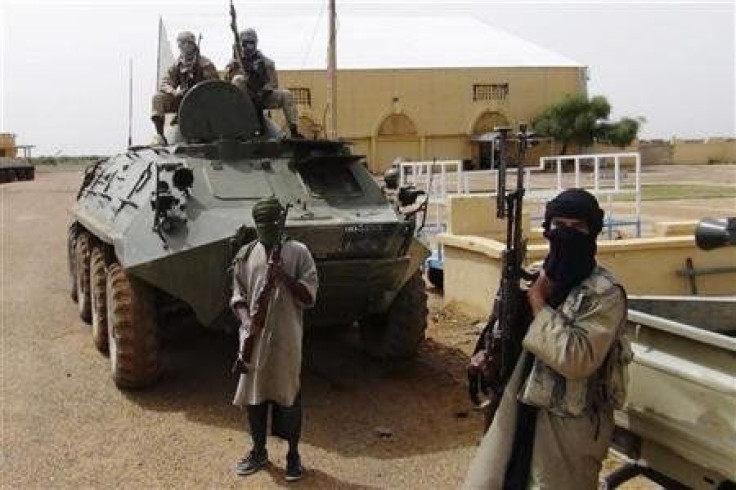Babies In Harm’s Way: Mali’s Use Of Child Soldiers Condemned By Human Rights Campaigners

France’s military intervention in Mali has raised concerns about the safety and well-being of child soldiers who have been forcibly recruited to fight by Islamist militants who control the northern half of the West African country.
Human Rights Watch, the New York-based activist group, said in a report that it had received eyewitness accounts of children in Mali as young as 11 years old participating in combat and staffing checkpoints in areas under aerial bombardment.
HRW suspects that three Islamist groups, Ansar Dine, the Movement for Unity and Jihad in West Africa (MUJAO), and Al Qaeda in the Islamic Maghreb (AQIM) have already used hundreds of children for their fighting forces since seizing control of Northern Mali last April.
Witnesses in the Malian towns of Konna and Gao told HRW researchers by telephone that many children belonging to Islamist soldiers were involved in the occupation of the town last week.
“The Islamists arrived in about 10 land cruisers,” a witness from Konna said.
“After the fighting died down, we went to the entrance of town to see them. I was shocked to see about a dozen children among them, several were only 12 or 13 years old, all armed with big guns, and working alongside the big men.”
Another witness told HRW: “On Friday … I saw six Toyota land cruisers full of fighters leaving for the battle in front of the HQ of the Islamic Police. There were children in two of these -- around five in one truck and two in the other. These are our children -- what do they know of war? These so-called Islamists are sending our innocents to be slaughtered in the name of Jihad … I ask you, what kind of Islam is this?”
A woman who traveled from Bamako to a village near Gao said she saw numerous children at checkpoints in Boré, Douentza and Gao.
“There were so many children among MUJAO,” she told HRW. “In Boré it was the children who came into our bus to ask for our papers and check our luggage. There was only one boy over 18 at this checkpoint. And in Douentza, there must have been 10 of them under the age of 18, the youngest was only about 11.”
HRW reported that minors have been used by the militants to run foot patrols, guard prisoners, prepare food as well as engage in actual combat. The children are believed to come from Mali and neighboring Niger and Senegal, primarily from impoverished villages.
Not only are they trained in the arts of warfare and use of firearms, but also deeply immersed in fundamental Islamic teachings.
BBC reported last October that child soldiers can be bought for as little as £375 (about $600) in Islamist-controlled northern Mali. At that time, global media reports suggested that Islamists had purchased some 1,000 children for the purposes of warfare.
“These Islamist groups have no business recruiting children into their ranks, much less putting them on the front line,” said Corinne Dufka, senior West Africa researcher at HRW, in a statement.
“These groups seem to be willfully putting scores of children directly in harm’s way. Before the military campaign goes any further, the Islamists should release these children back to their families.”
Amnesty International’s Salvatore Sagues told Voice of America News: “We have already learned that some child soldiers were sent to the front line. Some of them have been wounded and killed.”
He also added that government-supported militias in the southern part of Mali are using child soldiers.
HRW indicated that the recruitment of children under the age of 15 into the armed forces constitutes a “war crime” under the statutes of the International Criminal Court. As a party to the Optional Protocol to the Convention on the Rights of the Child, which prohibits the use of children under 18 in armed conflicts, Mali would be in grave violation.
According to a report by Agence France Presse from August 2012, some of the children recruited by Islamist militias are also being used as sex slaves for adult warriors.
“We have corroborating information that these children are used as soldiers, minesweepers, scouts, spies, messengers, look-outs, cooks and sexual slaves, in the case of young girls," said Mamoud Lamine Cisse, president of a Malian child rights coalition.
UNICEF has indicated that child soldiers have been used in wars across the African continent, including Angola, Chad, Congo, Liberia, Uganda, Sudan, Central African Republic and Rwanda. Children have also been recruited in conflicts in Sri Lanka, Afghanistan and Burma.
© Copyright IBTimes 2024. All rights reserved.











